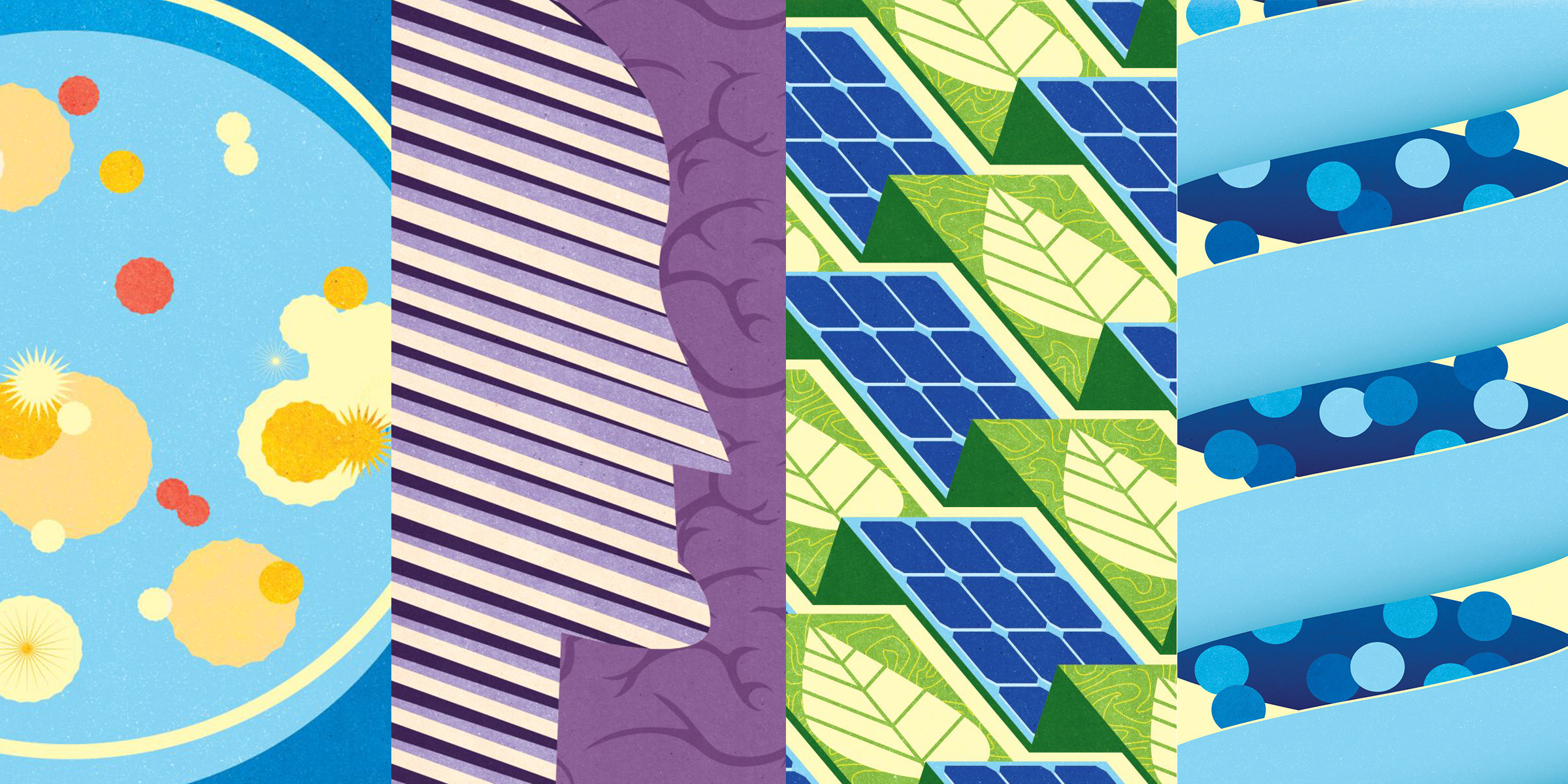By: Jon Farrow
26 Mar, 2020

Four research programs which emerged from CIFAR’s first Global Call for Ideas in 2014 underwent their first 5-year review in the fall of 2019.
Following recommendations from review panel members, the Research Council, and the President & CEO to the Board of Directors in February 2020, the Humans & the Microbiome, Azrieli Brian Mind & Consciousness, and Bio-Inspired Solar Energy programs were selected for renewal. The Molecular Architecture of Life program will not be renewed for a second term and will close in 2020/21.
“I am looking forward to the exciting and important questions that the renewed programs will address over the next five years, from understanding the catalytic reactions necessary for solar fuels, to the relationship between the brain and mind, to how the microbiome affects human health and evolution, I want to thank the review panels and research council members, CIFAR staff, fellows, advisory committee members, and the board for their hard work and dedication during this process.”
Alan Bernstein, CIFAR President & CEO
CIFAR reviews all programs five years after their inception and at the end of every subsequent five-year term. Each program is reviewed by an independent expert committee, consisting of four or five eminent researchers with specific expertise relevant to each proposal. One member from CIFAR’s Research Council also participates as an observer at review meetings. The expert committee meets in person over two days to assess a program’s achievements over the past five years as well as their proposal for the next five years. They observe a portion of a CIFAR program meeting, and ask questions of the current and proposed program leadership, members and advisors.
Expert review panels generate reports centred on the four necessary components of a successful CIFAR research program:
These reports are reviewed and discussed by the President’s Research Council, who assist the President & CEO in bringing a recommendation of renewal or closure to the Board of Directors.
In its first five-year term, the Humans & the Microbiome Program has been uniquely positioned to explore fundamental and challenging questions that are arising as microbiome research matures. Program members have explored the foundational role of the microbiome throughout the human lifespan, examined the role of the microbiome in evolution and adaptation, and applied anthropological approaches to these problems, all the while learning to communicate across diverse disciplines.
Over the next five years, the program will challenge the status quo of microbiome research that focuses on individual microbiomes and particular diseases and will explore the relationship between the human microbiome and the changing environment.
Azrieli Brian Mind & Consciousness
In the first five-year term of this program, fellows engaged in focused discussions covering a wide conceptual territory, including the origins, development, uniqueness, mechanisms, and neural bases of consciousness.
The program is now at a pivot point and for the next five years it will move away from broad exploratory themes. The team will complement core questions about the neural and cognitive mechanisms of human consciousness with new emphasis on education, aesthetics, art, and emerging technology and policy, with particular focus on artificial intelligence and virtual reality.
In the first five-year term of this program, members sought insight from biological systems to inform advances in artificial solar-to-electricity and solar-to-fuels energy conversion. The team explored how energy moves in photosynthetic systems, how enzymes turn energy into stored chemical form, and how biological systems achieve high specificity, or synthesis of a single chemical product. The mission of the next phase of the program is to conceive and develop concepts that enable energy-relevant, demanding chemical transformations.
The Molecular Architecture of Life
Over the past five years, the Molecular Architecture of Life program has explored new thinking about living systems and developed a framework to give a holistic understanding of cell functions. They discovered that primary processes as complicated as vision distill down to as few as three key reaction modes, and that these can be well defined and experimentally characterized. This opens the possibility for a molecular map of the cell, understanding how each and every molecule in a cell interacts and changes to result in life.
Notifications